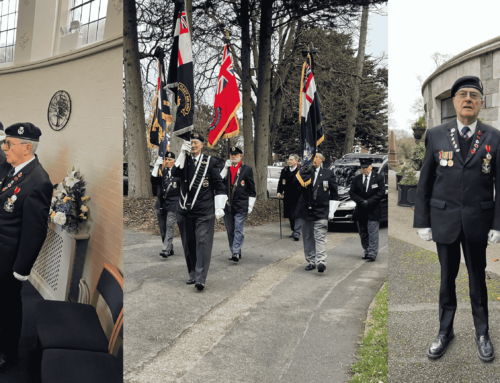By the Bereavement Counselling Team of Rowland Brothers Foundation
So, you’ve been asked to write and deliver a eulogy at the funeral of a loved one or friend (a eulogy is a short speech paying tribute to the one who has passed away).
It’s a huge privilege, but it’s also a stressful responsibility if you’re not used to speaking in public. So, although you may want to say yes, take a moment to think about it. If necessary, people can help you write the words, but if you are a person who gets emotional very easily, it might be better for you to write it but to ask someone else – perhaps the minister conducting the service – to read it aloud for you. If you break down halfway through delivering it, it is ok and is to be expected, mourners will expect emotion. The minister will always be on hand to read the rest of the eulogy should you not be able to do so. Do ensure you bring typed notes so the minister is able to follow and read the eulogy.
Let’s say, though, that you feel able to both write and read the tribute. Here are some tips on what to say.
Your first responsibility is to the person about whom you are speaking. You are summing up his or her life and achievements in a way that catches their character and personality. You are not there to demonstrate how good a speaker you are, but to do justice to your friend or relative.
If the person was naturally funny with a brilliant sense of humour, then that should emerge from what you say. But if not, don’t tell a funny story just to lighten the moment. Be true to the person. Be aware of the tone of the gathering.
That brings us to your second responsibility, which is to the person’s family and friends, particularly those closest to him or her. What you say should remind them of the good times they had together, of the person’s qualities. Make them feel proud of them. Your words should comfort the mourners, get them through the difficult moments of the funeral, and give them memories to look back on later. Because of their grief they might not take in or remember much of what you say, so give them a copy to read later at a more relaxed moment.
Now, to write it.
Before you start, talk to the person’s relatives, friends, business colleagues and mates about the person, and make notes of what they say, so you can quote some of them. Jot down your own ideas and arrange them into the order in which you will refer to them. Think about the style of the funeral and the tone that would be appropriate.
Start with an interesting point about the person, and think of a memorable way of finishing. For example, if he or she loved telling jokes, tell one of their favourites. Or if one of the family members you spoke to – a grandchild perhaps – said something lovely about what they would remember their grandparent for, that could make a beautiful ending.
A good place to start writing thoughts down is to state some facts about the person, where and when they were born, where they lived during their life, their occupation and interests and achievements.
How long should you speak for? That depends on whether your eulogy is the only one, or one of a number of tributes. From 5 to 15 minutes is usually about right. Be aware that funerals are often time limited as they should fit into a slot specified by the church or crematorium. Many crematoria have 45 minutes time slots, that include the time needed for mourners to enter and leave the chapel, leaving 30 minutes for the service itself. There is often more time available if it is a burial.
Remember that what you are trying to do is bring the person to life for a few moments in the minds of those present. If what you say is heartfelt and meaningful then you don’t need to be a great orator. Just try to capture the essence of the deceased.
You can do this not only through your own memories of him or her, but by quoting other memories of family and friends. They will be grateful to you for doing this, if they themselves do not have the opportunity to speak.
Despite these tips, there is no right or wrong way to present a eulogy. Just do the best you can. This is a hugely important job and a great honour.
Remember that the eulogy is about one person, but is intended for the family to hear. You will want to say good things about the person, but avoid sensitive family matters. Be honest, but selective. The congregation need to leave the service feeling uplifted and inspired. But unless you are the minister conducting the funeral, it is not your job to preach a sermon.
Above all, if possible, tell stories involving the one who has passed. Happy stories, inspiring stories. Stories for the congregation to remember, for stories are memorable, unlike lists of dates and places, which may well be given anyway on the back page of the order of service.
Three last points. Do check your facts with people who know the person, perhaps even better than you. If someone else is also speaking during the funeral, liaise on the content of your speeches, to avoid saying the same thing twice. Do practise reading aloud what you have written, remembering that perfect sentences are not required on this occasion. Correct grammar is less important than warmth and sincerity.






